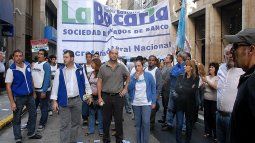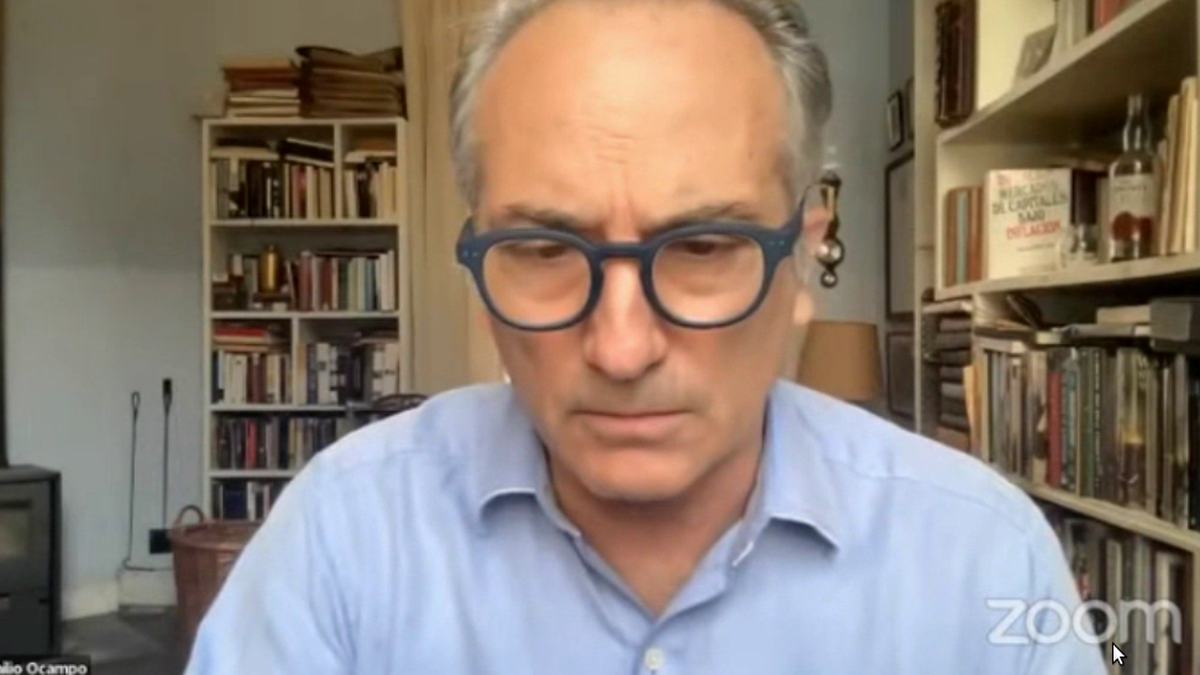Emilio Ocampo, a UCEMA professor, joined Javier Milei’s teams. He is one of the main drivers of adopting the US currency. In JxC they support reforms, including an “independent” Central Bank scheme.
Minutes before exposing before an audience convened by the Latin American Economic Research Foundation (FAITHFUL), the UCEMA professor, Emilio Ocampo, had confirmed that he joined the technical teams of Javier Milei. So he spoke for the libertarians. The traditional “think tank” of Argentine liberalism organized a seminar that also Diana Mondino participatedeconomist and candidate for deputy for La Libertad Avanza, and Martin Tetaz and Ricardo Lopez Murphy, from Together for Change. It became clear that the two forces they are going for a strong fiscal adjustment in case of winning the elections, but from the side of Patricia Bullrich they have already warned the libertarians that the project to adopt the currency of the United States “does not go through Congress.”
The content you want to access is exclusive to subscribers.
Ocampo, the main defender of dollarization in the country, justified his proposal that the Argentina requires a “hard monetary reform that resists a change of government”, under the assumption that there is a possibility that in the future there could be an administration that he qualifies as “populist.” But in order to implement the scheme he considered that before it is necessary to “eliminate inflation and quickly stabilize the economic variables” because already in 2025 the government that takes office in December will have to go to the polls.


In fact, it recognizes that in order to implement the plan “Political power is required and that is granted by the votes”. Ocampo’s scheme does not imply replacing pesos with dollars from one day to the next, citing the cases of Ecuador and El Salvador as examples, where local currencies were gradually eliminated. But the economist focuses his gaze on rebuilding the Balance of the Central Bank. In this sense, he considers that it is necessary to end the china swap for “its opacity of conditions” and proposes remove the leliqs “without removal”, transferring its debt to a kind of liquidating entity that it calls the Monetary Stabilization Fund.
The change, Tetaz practically closed the debate from a political point of view, indicating that in the event that Milei was the next president “with 34 deputies and 5 senators it is impossible” that they can carry forward the initiative through Congress. “Dollarization is not going to happen in Argentina, Emilio, and it will not happen, not because we are not convinced of the need for stability, but because We are convinced that it is a bad idea. He pointed out, although he indicated that “we all agree” to carry out “a monetary reform and a change of regime”.
Tetaz ruled out the dollarization scheme by warning that “the day Brazil devalues we have another 2001”. In the same way, he warned about the great difference in productivity of the United States economy with respect to that of Argentina. “Being tied to an economy that invests 4 to 5 points of GDP in technology and development against 0.5%, it is a matter of 5, 8 or 10 years for us to be expensive compared to the world,” he explained.. Tetaz’s proposal is for a Central Bank whose president cannot be removed by the Executive Branch and whose board of directors is made up of representatives of the first 10 local banks.
López Murphy also questioned dollarization, by holding that the next government has to be “capable of establishing a fiscal rule that has majorities.” Basically, what it proposes is that if Argentina does not eliminate the fiscal dominance of its monetary policy, there will be no scheme that will resist. “Without that control, everything else is useless. Setting a monetary standard (like dollarization) cannot be applied,” he said.
Mondino He also considered that there is a sharp deterioration in the Argentine economy due to the persistent fiscal deficit. But he considered that dollarization “is an opportunity to study.” He assured that “not only for this reason will Argentine problems be solved” and said that “the key is to have fiscal discipline and flexibility in the economy.”
In this sense, he maintained: “There is already an advanced dollarization process in Argentina. And underpinned by that, a transition will probably be less difficult, because it will have to incorporate significant flexibility in prices, wages, and interest. It is necessary to look for something more permanent, although it will be difficult and painful.”
Source: Ambito




